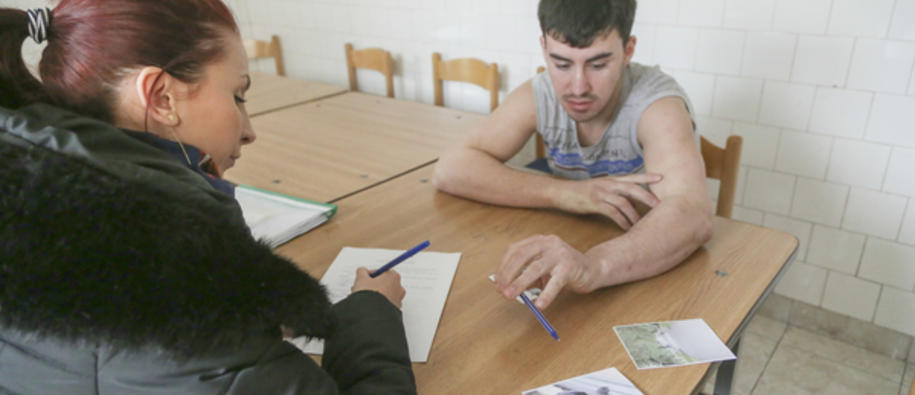Bacău young offenders prison does not conform to European standards, it is overcrowded and has poor standards of hygiene - in short, it needs renovation. There are no sports facilities and little to prepare the young men for a healthy and productive way of life on their release. Norway is providing €2 658 252 million to build a new wing with bigger cells and spaces for educational and social activities. But this project is not just about funds, it is about bringing expertise with the involvement of programme partner, the Directorate of Norwegian Correctional Services (KDI).
“There are almost no available funds for refurbishing prisons in Romania, except through the Norway Grants. We are going to build a new wing with bigger cells and space for educational and social activities,” says Iuliu Maximilan Oana, the project promoter for the refurbishment of the prison, based in the National Administration for Penitentiaries.
The staff are also excited, prison warden, Catalin Pavel says, “the project’s aim of improving the correctional services system is like ‘fresh air’ for them and they are looking forward to the changes.”
Overcrowding
Bogdan (19), who is serving a prison sentence for theft, outlines the main problem, “130 prisoners share eight cells in this cell block. It’s overcrowded and conflicts can break out over anything”.
Oana confirms that the building is badly maintained and provides poor standards of hygiene and sanitation, there are 850 prisoners and on average there are 20 in each cell. The overcrowding is a serious cause of conflict and the confined quarters result in bullying.
“They start bullying each other and that eventually causes fights and violence between inmates. This is a threat to security. All our efforts are useless, if the inmates do not have proper conditions for living and studying,” says Oana.
Education, activities and rehabilitation
The prisoners need training to avoid reoffending on release, but there is only one small room for educational purposes and almost no teachers. With so many prisoners and so little attention to rehabilitation there is little hope that their time in prison will prepare them for a better life. Staff will be given training in working with vulnerable prisoners, with the introduction of a ‘special assistance programme’, to assess and assist with their psycho-social recovery and addressing their educational needs.
p>“We are very young, between 19 and 21, with too much energy and need to be active. We have not sports hall and almost no educational facilities,” says Bogdan.
Tiberiu Claudiu (19) has served half of his eight-year sentence for robbery, he is one of the few inmates who benefits from therapy sessions. He says that the therapy helps him deal with “difficult things”, such as problems he had with his family. However, he is fully aware that art therapy alone won’t help him on his release:
“I need more education to be rehabilitated, get a job and move on with my life.”
Cosmin (19) agrees, “The best thing we could be offered is more space and to learn something that could be useful when we get out of here.”
Minors
Of the 850 inmates of Bacău, 50 are minors. The youngest is 14 years of age.
“Children should not be in jail. The conditions for them are sad,” says Pavel.
Bacău will be transformed into a juvenile detention facility, reserved for young criminals between 18 and 21. Minors, aged 14-18, will no longer be put in prison cells but moved to educational centres.
The young people who are currently serving their sentence don’t think that they will benefit from the changes but still welcome the changes.
“Refurbishing the prison is the right thing to do. It won’t necessarily benefit me, because I don’t have that much more time left in prison, but it will make it better for future prisoners. The punishment will be easier to endure and the time will pass more quickly,” says Bogdan.
Read more about the ‘Correctional Services, including Non-custodial Sanctions’ programme here
Read more about other programmes and projects by visiting the Romanian country page
